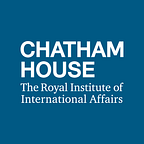The Week at Chatham House: Responding to the Skripal Attack, Trump-Kim Nuclear Summit plus Buddhist-Muslim Tensions Erupt in Sri Lanka
The latest international news and analysis this week.
Responding to the Skripal Attack
In the latest development in the Salisbury nerve agent attack, the UK, the US, Germany and France have released a joint statement condemning Russia over its alleged involvement in the poisoning of Sergei Skripal and his daughter Yulia Skripal. As tensions continue to escalate between Downing Street and the Kremlin, Moscow wants to see if the UK government will muster a strong response to assassination attempts on British soil, write John Lough and James Sherr. Meanwhile, Nigel Gould-Davies and James Nixey outline the principles that should guide the UK’s actions following the attack and a new research paper examines the key questions of Putin’s next six-year term.
Trump-Kim Nuclear Summit: ‘It’s Not a Problem of Who Has the Weapons; it’s a Problem of the Weapon Itself.’
Following last week’s news that US President Donald Trump will join North Korean leader Kim Jong-un at a summit to discuss the future of Pyongyang’s nuclear and missile programme, Beatrice Fihn, executive director of the International Campaign to Abolish Nuclear Weapons, speaks to Nina Black about why multilateral action on nuclear disarmament needs to be more effective and what she thinks of the planned Trump–Kim nuclear summit.
Meanwhile, Mike Pompeo’s relationship with Donald Trump could make for more coherent US foreign policy and a stronger stance on Russia, but his positions on Iran and North Korea will put him at odds with US allies, writes Xenia Wickett.
How Older Female Entrepreneurs Boost Rural Communities
As the world’s population gradually ages, one of the best kept secrets is the power of older, rural women entrepreneurs to boost social and economic prosperity, locally and globally, writes Elizabeth Isele.
What Future for Military Intervention?
Are the days of large-scale Western military interventions over? Admiral James Foggo, commander of Allied Joint Force Command Naples and US Naval Forces Europe and Africa, speaks to Jason Naselli about how military intervention is changing and how NATO is preparing for future threats.
Sri Lanka’s Buddhist-Muslim Tensions Are in Danger of Erupting Into Widespread Violence
And finally, recent attacks against Muslims by Buddhist militants in Sri Lanka have raised fears of increased communal violence, writes Champa Patel. But this recent violence is not random, or isolated, and poses the danger of inciting further aggression.
Elsewhere, John Nilsson-Wright asks whether trust can be restored and maintained between the US and Japanese governments and between Shinzo Abe and the electorate.
